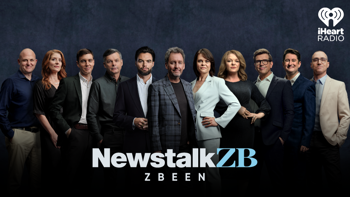The coalition Government wants to fund its tax cuts through enabling more kids to start smoking, Labour’s health spokeswoman Ayesha Verrall says.
The new National-Act-New Zealand First Government has agreed to throw out laws before next March that restrict the number of retailers allowed to sell cigarettes, ban those born after 2008 from buying them and cut the amount of nicotine allowed in tobacco.
The laws were passed last year under the Smokefree Environments and Regulated Products (Smoked Tobacco) Amendment Bill.
“It means that ultimately lives will be lost and there’ll be more health care costs down the road,” Verrall said, blasting comments made by National’s deputy leader Nicola Willis about the cost of smokefree legislation.
In the pre-election fiscal update Treasury assessed the effect of the tobacco restrictions as significantly reducing revenue to the Crown, Willis told Newshub Nation.
National needs to fill a $740 million-a-year fiscal hole after NZ First forced the party to drop the foreign buyers’ tax it hoped would help pay for promised tax cuts.
/cloudfront-ap-southeast-2.images.arcpublishing.com/nzme/C42DPRBDKVFNLCKLZCB3GFPKZQ.jpg)
National's deputy leader Nicola Willis pictured in September. File photo / Michael Craig
The party says its tax plan includes provision to call on unallocated spending, with Willis telling Newshub Nation changes to the Smokefree legislation had a significant impact on the Government books - “with about $1 billion there”.
“What they’ve conceded,” Verrall said, “is that the Government aims to fund its tax cuts through enabling more children to start smoking.
“It’s disgusting.”
- The baubles of office: What's the salary for the new PM and Cabinet ministers?
- The biggest concessions Luxon made to get three-party coalition over the line
- Who are the new Cabinet ministers? Full line-up revealed
The Herald contacted National for comment.
“National is committed to reducing smoking rates and to helping people quit smoking”, the party replied via email, asking for the comment to be attributed to a “spokesperson for the National Party”.
“Responsibility for implementing the new regulations is still to be officially determined but is likely to sit with Associate Health Minister Casey Costello.”
Appearing on Newshub Nation after Willis, Act leader and incoming Regulation Minister David Seymour said without change Smokefree laws would force tobacco onto the black market.
“[Now] all of those [dairy owners] who are law-abiding and don’t break any other rules can continue to buy [cigarettes] and the Government can continue to tax it.”
Verrall - the former Health Minister whose government set a goal that fewer than 5 per cent of New Zealanders would be smokers by 2025 - said they’d been making excellent progress.
“We were dropping by 1 per cent every year, so we were going to be very close to it, but not anymore … I think the smoking rate was 7 per cent in the last survey.”
No one said they were unhappy with Smokefree legislation during the election campaign, Verrall said.
“This only helps the tobacco industry … Shane Reti’s first action as [incoming] Health Minister is to cave to tobacco industry interests here.
“What even is the point of having a doctor as a Health Minister if they won’t stick up for the fact that tobacco is bad.”
A joint study by New Zealand and Australian university academics published in the peer-reviewed BMJ in January showed that if smokefree regulations were fully implemented they’d save $1.3b in health system costs over the next 20 years and cut all-cause mortality rates by 22 per cent for women and 9 per cent for men, Health Coalition Aotearoa co-chair professor Boyd Swinburn said.
“This is a major loss for public health, and a huge win for the tobacco industry – whose profits will be boosted at the expense of Kiwi lives.”
/cloudfront-ap-southeast-2.images.arcpublishing.com/nzme/ZXB2LSOA5NBYBH7JWAJOFOYSHI.jpg)
Māori smoke at a higher rate than any other ethnicity in New Zealand.
Māori, who have the highest rates of smoking at 19 per cent, would be worst affected by a decision that was a “further insult to tangata whenua” alongside Government plans to ditch the Māori Health Authority, the health coalition’s co-chairwoman Professor Lisa Te Morenga said.
Under the coalition agreement disposable vaping products will be banned and penalties increased for illegal sales to under-18s.
There was also agreement to “reform the regulation of vaping, smokeless tobacco and oral nicotine products” but no specifics are given.
It wasn’t clear what impact the agreement would have on the vaping restrictions introduced in September, including restrictions on flavour names, banning new specialist vaping shops within 300m of schools and marae, requiring vaping devices to have removable batteries and child-safety mechanisms, and reducing nicotine limits to 20mg/mL for single-use vapes and 28.5mg/mL for reusable vaping products that contain nicotine only in salt form.
/cloudfront-ap-southeast-2.images.arcpublishing.com/nzme/WGGTDJ4G6JF6PPF5JLXL4ZHY54.jpg)
Labour Party health spokeswoman Ayesha Verrall.
While she didn’t know the Government’s full plan for vaping regulation, “I’m aware some of those proposals are exactly what the tobacco industry have been calling for”, Verrall said.
“We could end up in the bizarre situation where cigarettes are more available than vapes.”
Cherie Howie is an Auckland-based reporter who joined the Herald in 2011. She has been a journalist for more than 20 years and specialises in general news and features.
Take your Radio, Podcasts and Music with you









